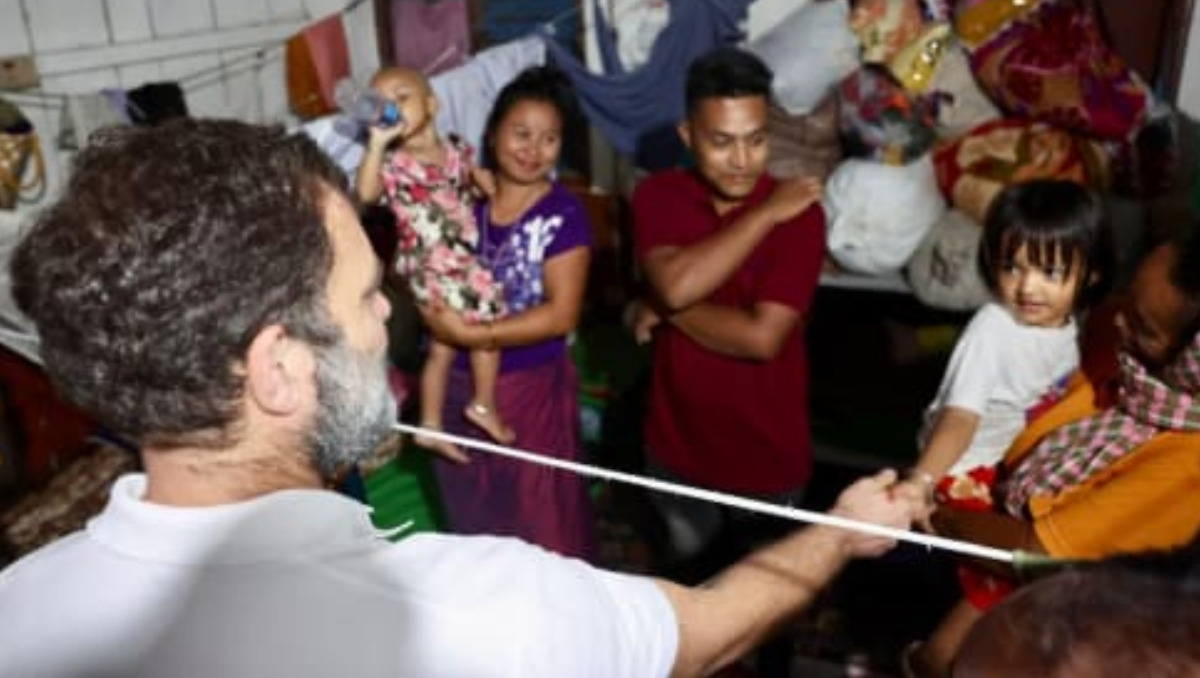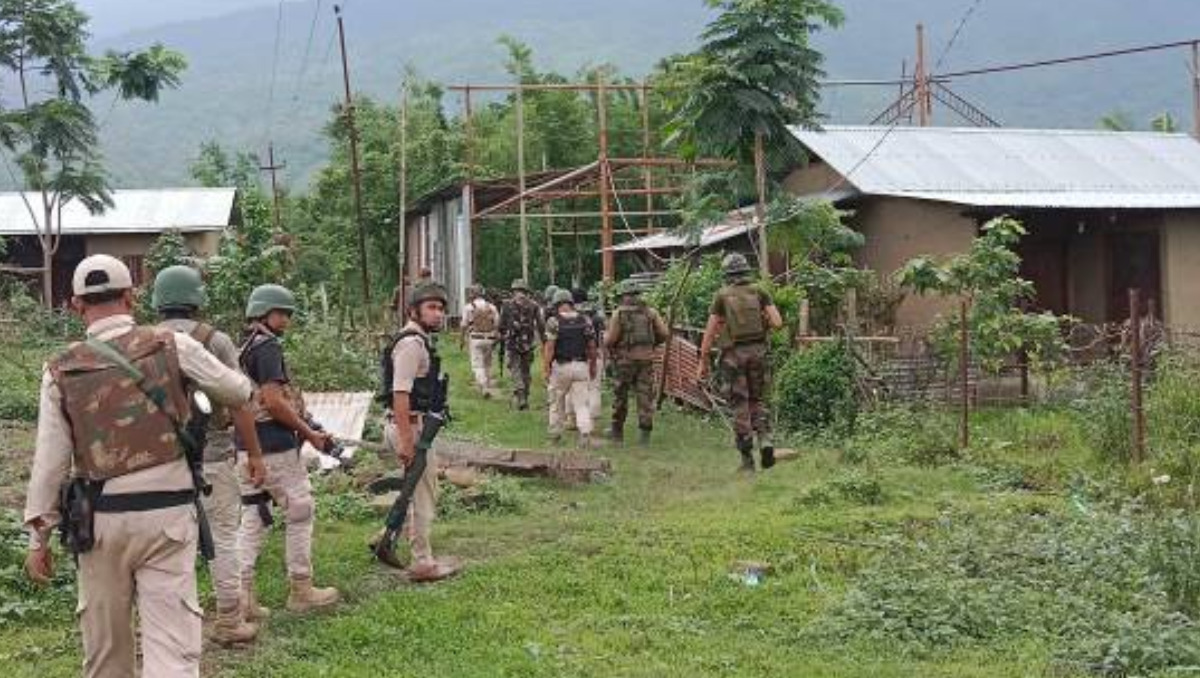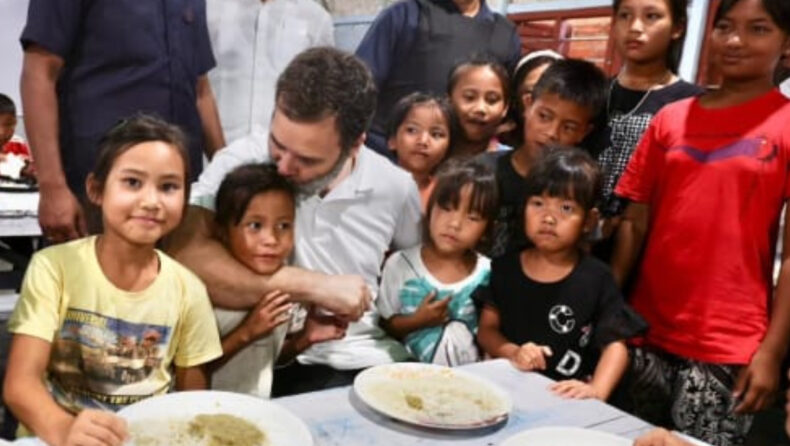Table of Contents
Rahul Gandhi, the head of India’s opposition, has visited with individuals impacted by the violence that has enveloped the state of Manipur in the region’s northeast. According to the party, the Congress leader spoke with affected families and visited relief shelters in Moirang town on Friday.
On Thursday, Mr. Gandhi, who is in the state on a two-day visit, also went to a relief camp in the Churachandpur area. He arrived there by helicopter when the authorities stopped his convoy due to security reasons.

In the state capital of Imphal, Mr Gandhi is set to meet with representatives of civil society organisations on Friday. Manipur has been rocked by conflicts between the Kuki and Meitei populations over the past two months, which make up the bulk of the state.
Causes behind the eruption of violence in the State:
400 people have been injured in the violence, which has claimed more than 100 lives. Many people have moved out of their homes.
After the Meiteis, the state’s dominant ethnic group, wanted tribal recognition, which grants access to advantages like forest land and government job and education quotas, clashes broke out.
Prime Minister Narendra Modi has met with senior government figures to discuss the situation in Manipur, but he has come under fire for not travelling to the state or making any remarks about it.
Home Minister Amit Shah travelled to the state to implement a plan to bring about normality almost a month after the conflict started, but new violent incidents are still being recorded virtually every day.
Thursday morning, Mr Gandhi posted on Facebook that restoring peace is the top priority following his arrival in Imphal. Only by working together harmony can be achieved in Manipur, which needs healing.
Congress party members on Rahul Gandhi’s visit:
After that, however, senior Congressman KC Venugopal informed the media that Mr Gandhi’s convoy had been stopped by police close to Bishnupur district while he was en route to Churachandpur town to visit relief camps.
According to the police, the convoy of the Congress party was stopped to ensure Mr Gandhi’s safety. According to Heisnam Balram Singh, a senior Bishnupur police official, The Congress party leaders, after reviewing the ground situation, were stopped from moving ahead and were suggested to go to Churachandpur by helicopter.
The leader of the Congress Party, Mallikarjun Kharge, alleged that the BJP administration was using dictatorial means to thwart a compassionate effort by Mr Gandhi. He tweeted that it was completely unacceptable and violated all democratic and constitutional standards. Manipur requires peace and not conflict.
Jairam Ramesh, a Congressman, claimed that Mr Gandhi’s two-day visit to the state was in keeping with the spirit of his Bharat Jodo Yatra, a five-month-long national unification march.
Rahul Gandhi’s efforts to listen to all segments of the Manipuri society and offer a healing touch shouldn’t be hindered, he argued, even if the Prime Minister chooses to say nothing or take no action.
The timing of Mr Gandhi’s visit, according to certain BJP leaders, was politically motivated. Due to the unrest in Manipur, about 60,000 people have been forced to flee and are now staying in about 350 camps.

The opposition is calling for the resignation of the state’s BJP-affiliated chief minister, N Biren Singh, at the time when Mr Gandhi is paying his visit. Congress leaders have demanded the imposition of federal authority in response to criticism levelled at Mr Singh for failing in restoring peace and normality in the state.
The state had been suffering for the past 2 months, according to Mr Venugopal, who tweeted about Mr Gandhi’s visit on Tuesday, and it urgently requires a therapeutic touch so that society can recover from violence to peace.
Numerous homes, churches, and temples have been burned down since the fighting started in early May, and several state politicians’ and ministers’ residences have also been targeted and set on fire.
To stop the violence, about 40,000 security personnel have been stationed. But the tight atmosphere is still present. Curfews, internet blackouts, irregular killings, and arson have destroyed the residents’ ability to live their usual lives.












